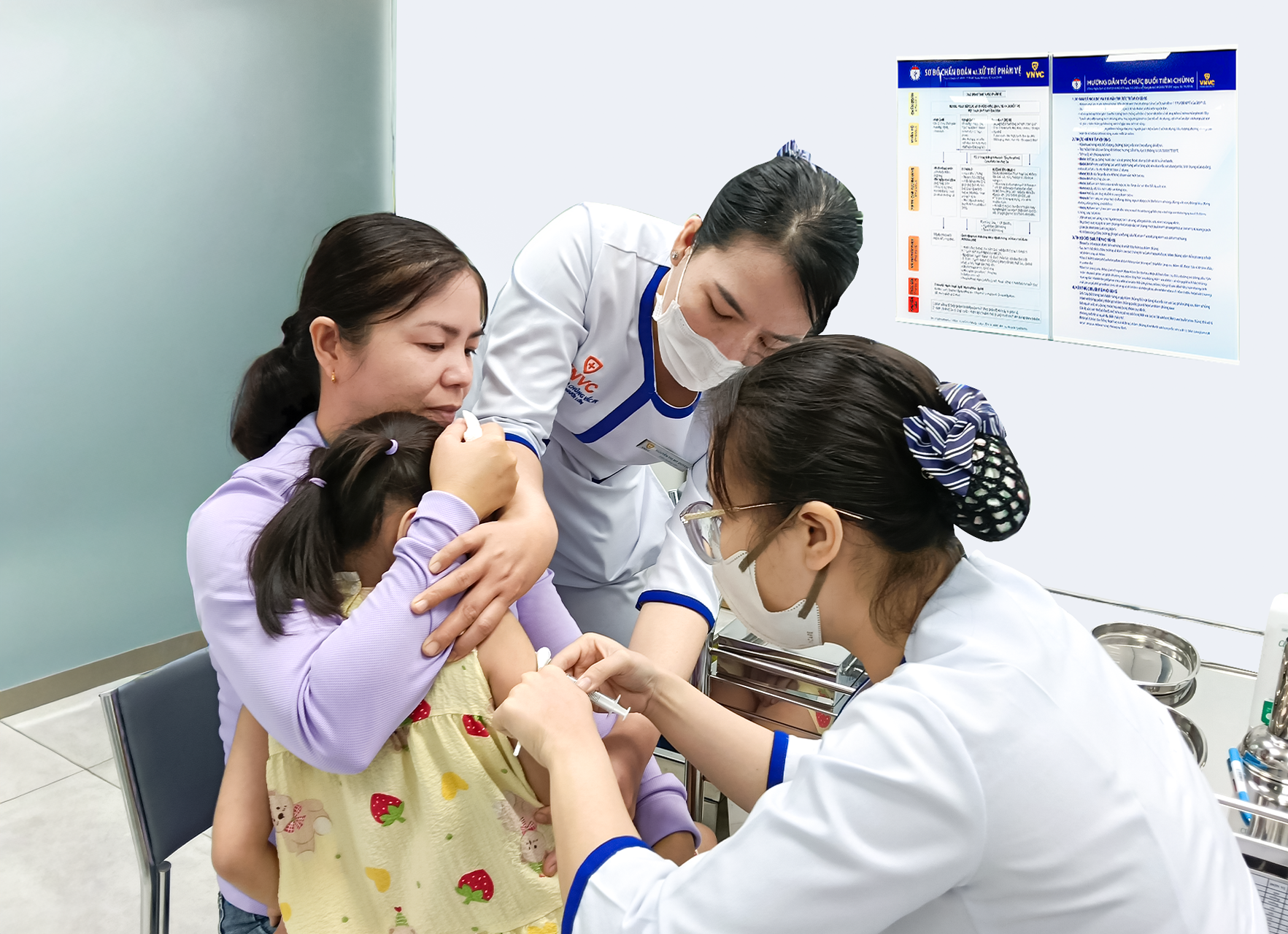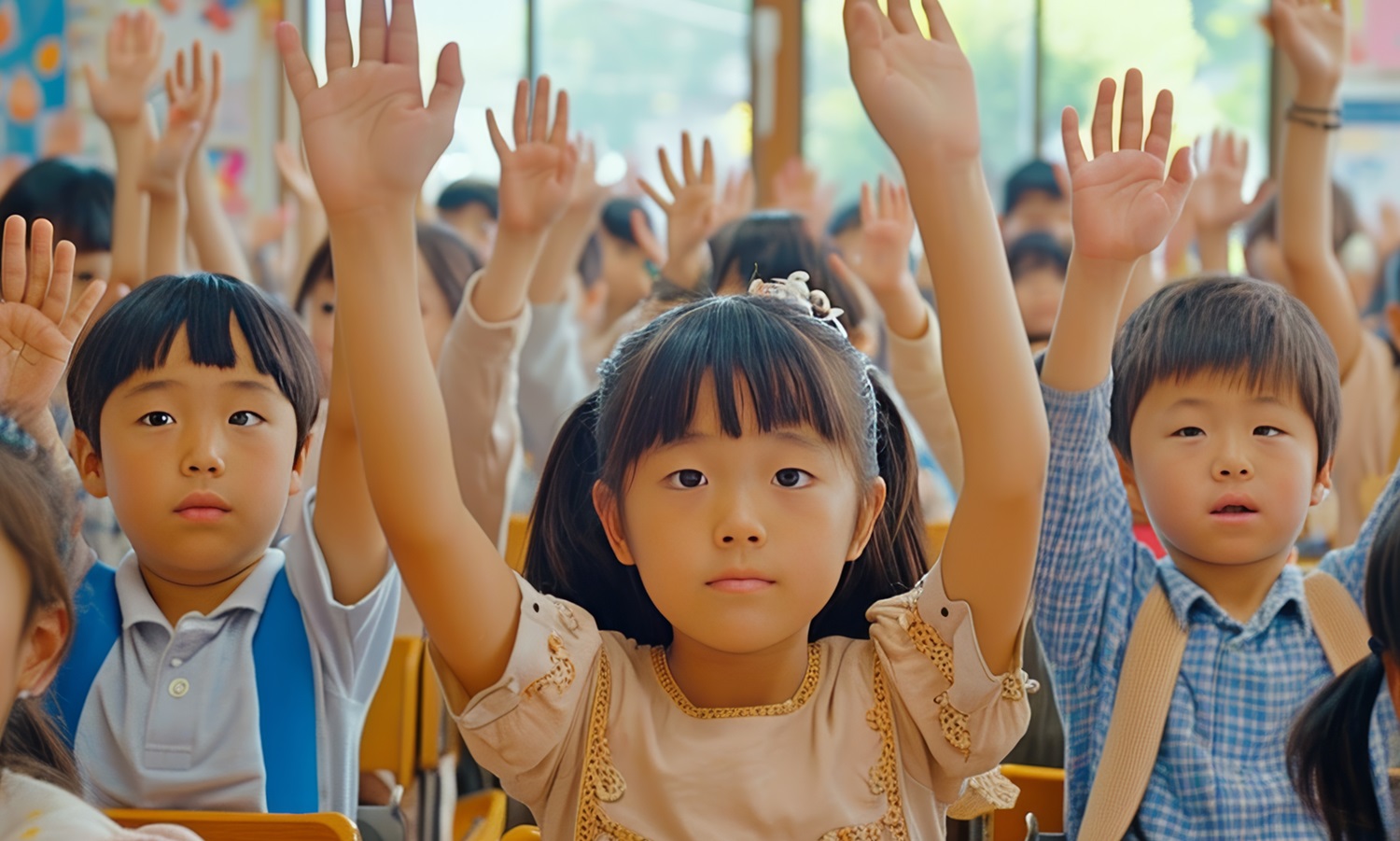Hong's family lives in the former Can Gio district, Ho Chi Minh City. To reach the VNVC Vaccination Center in Nha Be, the mother and daughter traveled for over an hour by motorbike and ferry.
Hong explained that her youngest daughter is starting first grade this year. Young children, often engrossed in play, don't always prioritize mosquito bite prevention. Therefore, she had her daughter vaccinated, hoping to protect her upon returning to school.
 |
Hong takes her daughter for a dengue fever vaccination at the VNVC Vaccination System. Photo: Hoang Duong |
Similarly, Van, 35, from Phu My ward, Ho Chi Minh City, also used the weekend to take her two sons, aged 6 and 4, for vaccinations. The 6-year-old received the chickenpox vaccine, while the 4-year-old received the 4-in-1 vaccine, which protects against diphtheria, pertussis (whooping cough), tetanus, polio, and pneumococcal disease, a cause of pneumonia and meningitis.
Van said that apart from their childhood vaccinations, her children hadn't received any additional vaccines. So, she is gradually scheduling booster shots for them. "Every time they get sick, my husband and I have to take turns off work to care for them, which creates a lot of backlog. With my son about to start first grade and interact with many other children, the risk of illness is high. Vaccinations provide peace of mind for us as working parents," Van said.
At the VNVC Sunrise City Vaccination Center in District 7 (Ho Chi Minh City), Thanh, 33, had her 8-year-old daughter and 6-year-old son vaccinated against the flu and typhoid, in addition to the dengue fever vaccination. At home, she regularly uses mosquito repellent, keeps the doors closed at night, and warns her children against playing in hidden corners, but these measures are not foolproof.
"Every year, my children often experience coughs and fevers due to illnesses they contract at school and then spread to each other, impacting their health," Thanh shared, explaining her reason for vaccinating them.
Dr. Nguyen Cong Luan, Medical Manager of the VNVC Vaccination System, noted that children typically return to school around August and September. This period coincides with the rainy and stormy season in Vietnam, characterized by high temperature and humidity. These conditions are conducive to the spread of respiratory illnesses and mosquito-borne diseases such as influenza, pneumococcal disease, dengue fever, Japanese encephalitis, chickenpox, and meningococcal disease. Furthermore, by the age of 4 and beyond, the effectiveness of vaccines received in early childhood begins to wane, creating an immunity gap. As children return to school and participate in group activities in enclosed spaces, their risk of contracting these illnesses increases significantly.
In addition, the transition back to school often disrupts children's routines and sleep schedules, coupled with academic pressures, which can weaken their immune systems. This makes them more susceptible to illness when exposed to pathogens.
 |
Children attending school are at risk of cross-infection from their peers, so parents should take proactive preventive measures for their children. Illustration: Vecteezy |
To prevent illness, parents should prioritize their children's physical and mental well-being. They should take their children to vaccination centers to review their vaccination records and receive any necessary booster shots based on their age. Children can receive consultations on various vaccines for respiratory illnesses such as influenza, pneumococcal disease (which can cause pneumonia, otitis media, and meningitis), measles-mumps-rubella, chickenpox, Japanese encephalitis, meningococcal B disease, and meningococcal ACYW-135 disease.
In addition, parents should ensure their children receive adequate nutrition, get enough sleep, engage in regular physical activity, and maintain good personal hygiene practices, such as frequent handwashing with soap.
Chi Anh












